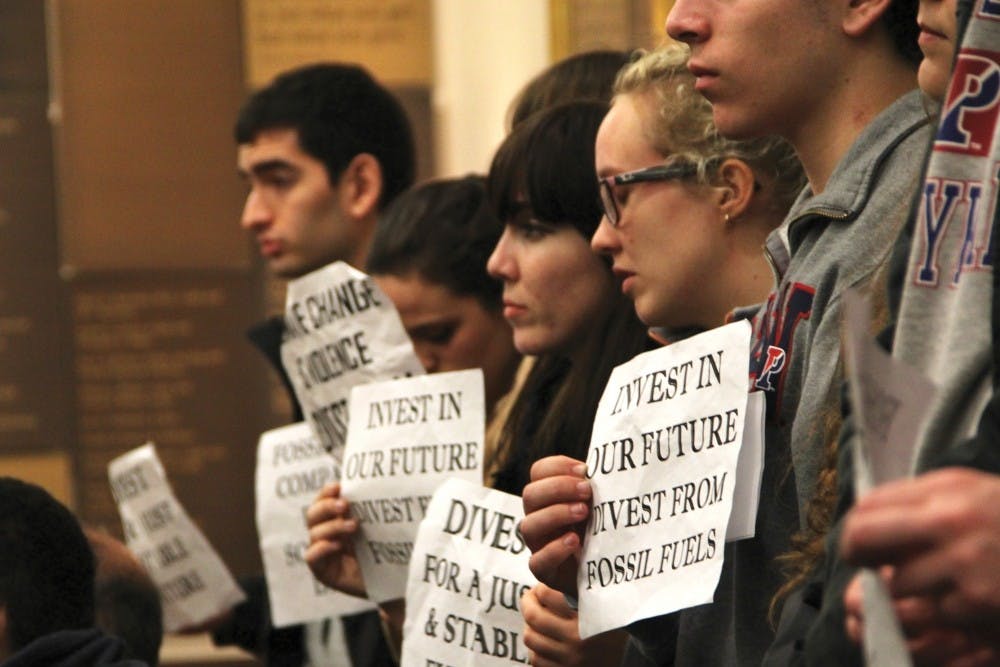University administrators have rejected student protesters’ latest call to divest its endowment from fossil fuel holdings.
At a planned meeting of the full Board of Trustee’s meeting in mid June, Chair David L. Cohen addressed various aspects of the open letter Fossil Free Penn published earlier this month which, among other demands, calls for the University to divest immediately from fossil fuel companies.
Cohen said he felt the University was already a strong contributor to the fight against climate change.
“Despite the continued entreaties from Fossil Free Penn, the Trustees see no change in circumstances that would justify the reconsideration of the initial, well-reasoned, and fully communicated decision [not to divest] made by the Trustees last September,” Cohen said.
Fossil Free Penn student outreach co-coordinator and rising College sophomore Zach Rissman said FFP was disappointed with Cohen’s remarks, and reiterated that the University has a duty to offer more than verbal reassurances of its commitment to climate action, particularly in the wake of President Donald Trump pulling the United States out of the Paris Accord.
“We recognize that Penn has taken steps toward reducing our carbon footprint, but the issue lies instead in what Penn has not done,” Rissman wrote in a statement to The Daily Pennsylvanian.
Rissman also argued that Penn’s investment decisions are far more impactful than its consumption decisions, and so withdrawing holdings in fossil fuel companies is a necessary step.
“[The University’s] impact as an investor is around three times that of [its] impact as a consumer in terms of climate change impact,” Fossil Free Penn said. “Penn cannot meaningfully fight against the climate change and for climate justice while continuing to be invested in the fossil fuel industry.”
As evidence of Penn’s support for action on climate change, Cohen noted how Penn President Amy Gutmann signed a statement reaffirming Penn’s commitment to the American Campuses Act on Climate Pledge along with 11 other peer universities. This agreement, organized by the Obama administration in 2015, acknowledges the importance of climate change and promises “to accelerate the transition to low-carbon energy while enhancing sustainable and resilient practices across [campuses].”
Cohen emphasized that the entire Board of Trustees supported this agreement, even as student leaders have said that verbal commitments are not enough.
In their open letter, FFP said the University was not among the 180 schools which signed the “We Are Still In” pledge, circulated by former New York City Mayor Michael Bloomberg. This pledge strongly rebukes the Trump administration in more direct terms for withdrawing from the Paris Accord, and has signees commit to pursuing “ambitious climate goals.”
In its language and direction, Bloomberg’s pledge is more overtly political than the one Penn signed.
Cohen said Bloomberg’s agreement did not find wide support across the Ivy Plus group, and was therefore not something Penn was interested in signing. (Columbia University is the only member to have participated.)
“Along with all but one of the Ivy Plus schools, we elected not to sign onto an alternative statement proposed by Michael Bloomberg,” Cohen said.
That explanation sounds a different note than the one the University initially gave.
When news of Bloomberg’s group broke in The New York Times, University spokesperson Stephen MacCarthy said “it does not appear” Penn or its peer schools in the Ivy Plus group were approached to sign Bloomberg’s pledge.









